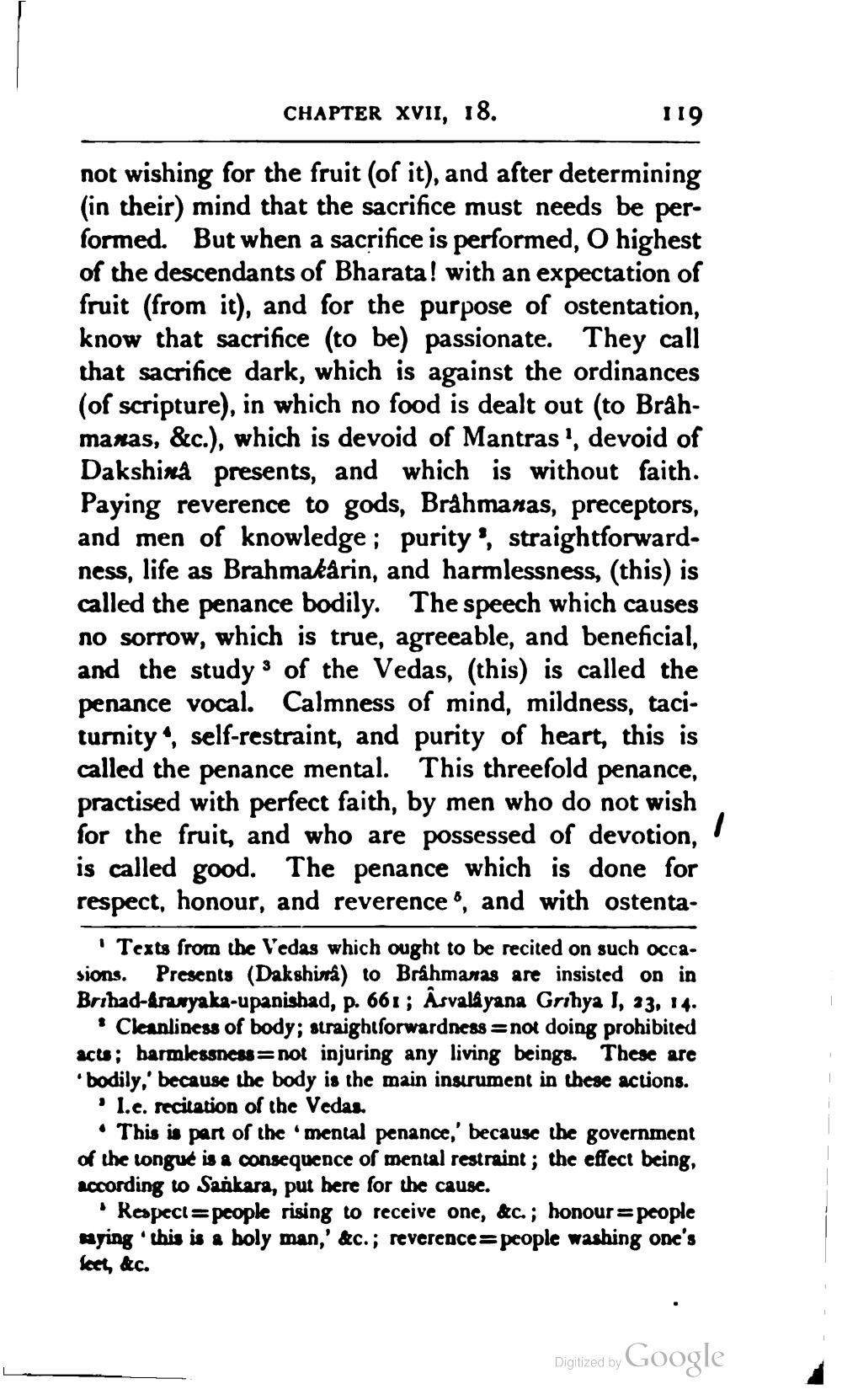________________
CHAPTER XVII, 18.
119
not wishing for the fruit (of it), and after determining (in their) mind that the sacrifice must needs be performed. But when a sacrifice is performed, 0 highest of the descendants of Bharata! with an expectation of fruit (from it), and for the purpose of ostentation, know that sacrifice (to be) passionate. They call that sacrifice dark, which is against the ordinances (of scripture), in which no food is dealt out (to Bråhmanas, &c.), which is devoid of Mantras', devoid of Dakshina presents, and which is without faith. Paying reverence to gods, Brahmanas, preceptors, and men of knowledge; purity', straightforwardness, life as Brahmakarin, and harmlessness, (this) is called the penance bodily. The speech which causes no sorrow, which is true, agreeable, and beneficial, and the study s of the Vedas, (this) is called the penance vocal. Calmness of mind, mildness, taciturnity“, self-restraint, and purity of heart, this is called the penance mental. This threefold penance, practised with perfect faith, by men who do not wish for the fruit, and who are possessed of devotion, is called good. The penance which is done for respect, honour, and reverence ®, and with ostenta
"Texts from the Vedas which ought to be recited on such occasions. Presents (Dakshina) to Brahmanas are insisted on in Brihad-Araxyaka-upanishad, p. 661; Asvaldyana Grihya I, 33, 14.
* Cleanliness of body; straightforwardness =not doing prohibited acus; harmlessness=not injuring any living beings. These are bodily,' because the body is the main instrument in these actions. · I.c. recitation of the Vedas.
• This is part of the mental penance,' because ibe government of the longue is a consequence of mental restraint; the effect being, according to Sankara, put here for the cause.
Respeci=people rising to receive one, &c.; honour= people nying this is a boly man,' &c.; reverence=people washing one's keet, &c.
Digitized by Google




